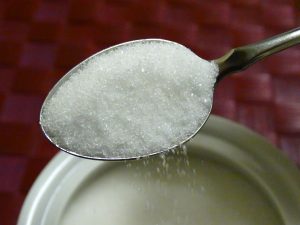By Heide Kennedy, Arizona Farm Bureau Communications Intern
Have you ever come to a point where you decided to try cutting out sugar from your diet? Since it can sometimes be hard to not have something a little sweet now and then, you might have discovered the mysterious world of artificial sweeteners. These sweeteners are sweet like sugar but don’t have all the same effects of sugar, which sounds too good to be true! So you might be wondering, are artificial sugars really that perfect? 
Well to answer part of that question, a recent study published in iScience has found that artificial sugars actually take a negative toll on our gut microbiomes. Dr. Ruchi Mathur, the author of the study, says that artificial sweeteners are not completely harmless. The study found that people who used sucralose (Splenda), saccharin (Sweet ‘n Low), or stevia tended to have less rich and diverse colonies of bacteria in their small intestines.
When aspartame (Equal) was studied however, researchers found that those who consumed it didn’t have a lessened gut microbiome like those who used other artificial sweeteners did. But what aspartame users did exhibit was an increased concentration of bacteria that produce a toxin called cylindrospermopsin. This toxin is known to have harmful effects on the liver and nervous system, and it is also a potential cancer-causing agent.
It might be worth taking a second look at the type and amount of artificial sugar that you consume. If you do pursue a sugar free diet, maybe consider either avoiding sweets as a whole, or opting for natural sugars like fruit, honey, maple syrup, or dates!
For more information about artificial sugars, check out this previous article from Fill Your Plate: Artificial Sweetener Linked to Higher Risk of Heart Attacks and Stroke – Fill Your Plate Blog

